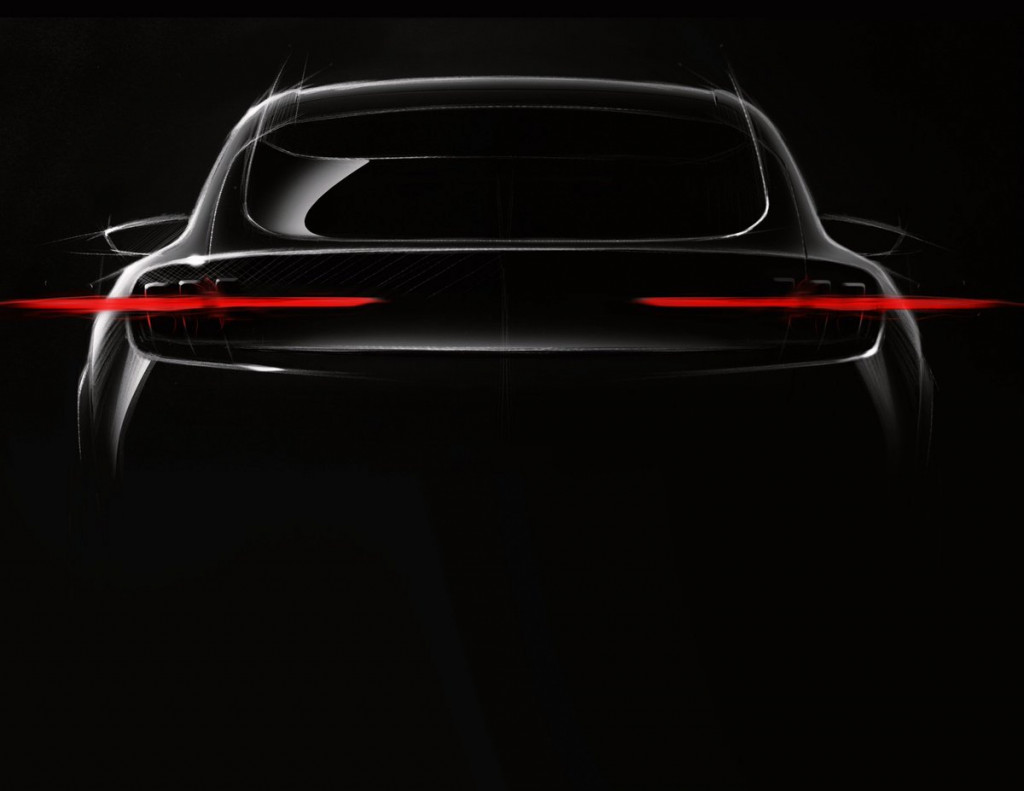A day after Volkswagen announced that it will bring production of its electric cars to its U.S. factory in Chattanooga, Tennessee, the company announced that it plans to sign a memorandum of understanding to work with Ford to jointly develop electric cars and self-driving cars.
In a joint announcement by the two companies today about cooperation on small commercial vans and pickups, executives on both sides confirmed they are also in discussions on cooperating on EVs, but that those agreements are not yet complete.
With Ford providing commercial trucks and vans to Volkswagen in markets outside the U.S., speculation from financial analysts and journalists in the Q&A session centered around whether Volkswagen might license its upcoming MEB electric-car platform to Ford to develop new Ford electric cars. Executives were clear that no such agreement has been reached, though they are working on it.

2020 Ford electric SUV teaser
Ford has said it plans to build a hybrid version of each of its SUVs, plus the F-150 pickup, by 2020, and plans to build six battery-electric vehicles by 2022. The company says one will be a high-performance SUV with Mustang-based styling and 300 miles of range.
DON'T MISS: Volkswagen will make electric cars in Tennessee, at expanded plant
VW CEO Herbert Diess threw cold water on the suggestion of providing the company’s MEB architecture for Ford to build electric cars for the American market, saying “MEB is engineered to excel in Europe.”
Yet Volkswagen is expected to introduce its own electric car based on the MEB architecture in the U.S. in 2020, the VW ID Crozz, a small crossover vehicle. The company also plans to release a stretched version of the MEB architecture to underpin a new electric luxury sedan for China and the ID Buzz electric microbus for the U.S. Volkswagen also has at least two other electric-car platforms for more expensive models.
READ MORE: VW may share electric-car platform with Ford
Volkswagen’s announcement Tuesday that it plans to expand its Chattanooga factory to build electric cars negates earlier rumors that VW might use excess Ford factory capacity to build electric cars in the U.S.
Still, both Diess and Ford Executive Vice President Jim Farley said the companies are planning to cooperate on developing electric vehicles. That news definitely throws down the gauntlet for VW to reciprocate Ford’s willingness to share its Ranger pickup and Transit van platforms with VW.
Diess said Volkswagen has set a target to be the No. 1 company in providing electric mobility services in the world by 2025, and, he said, “We’re prepared to share that advantage.”












